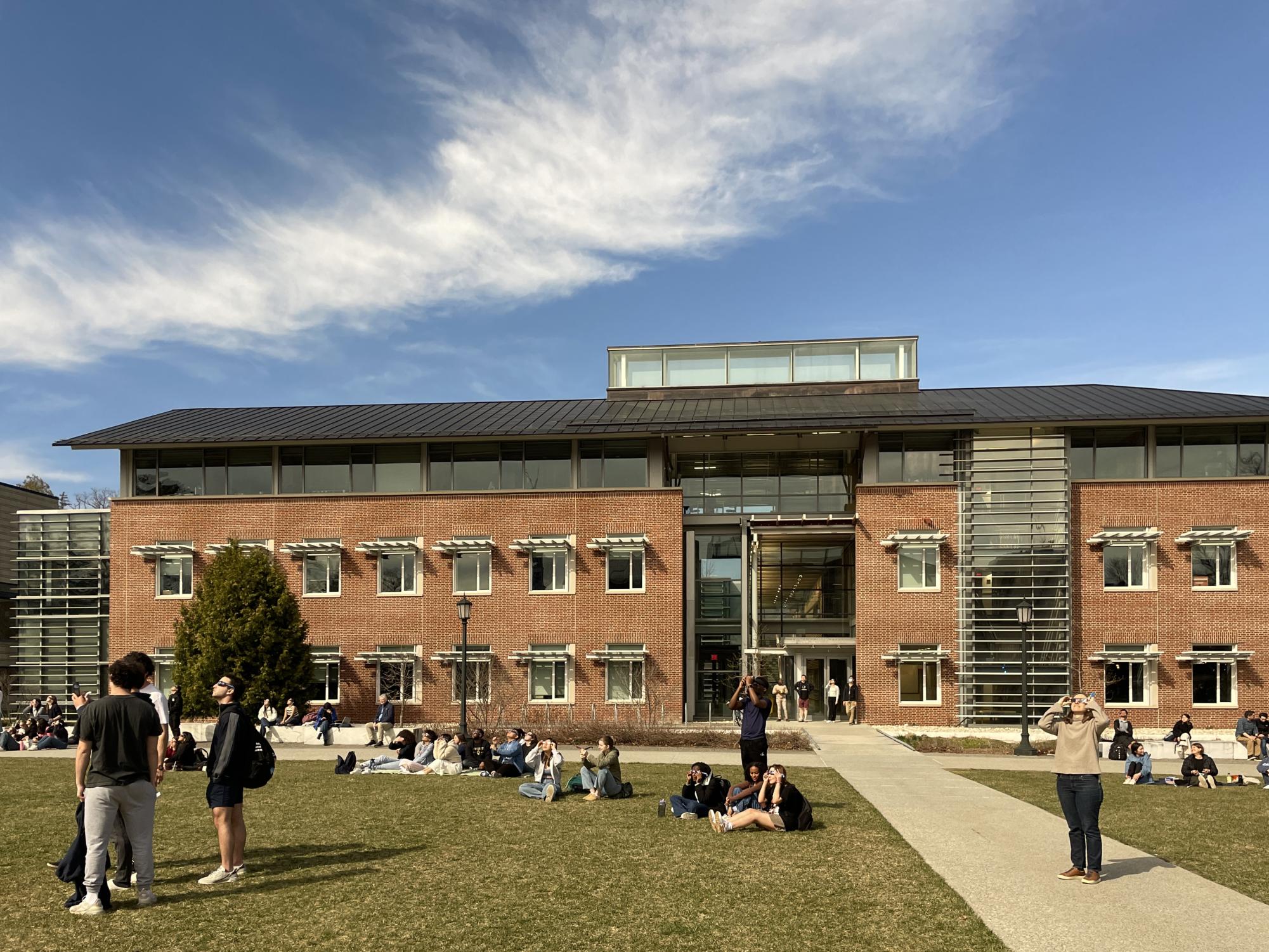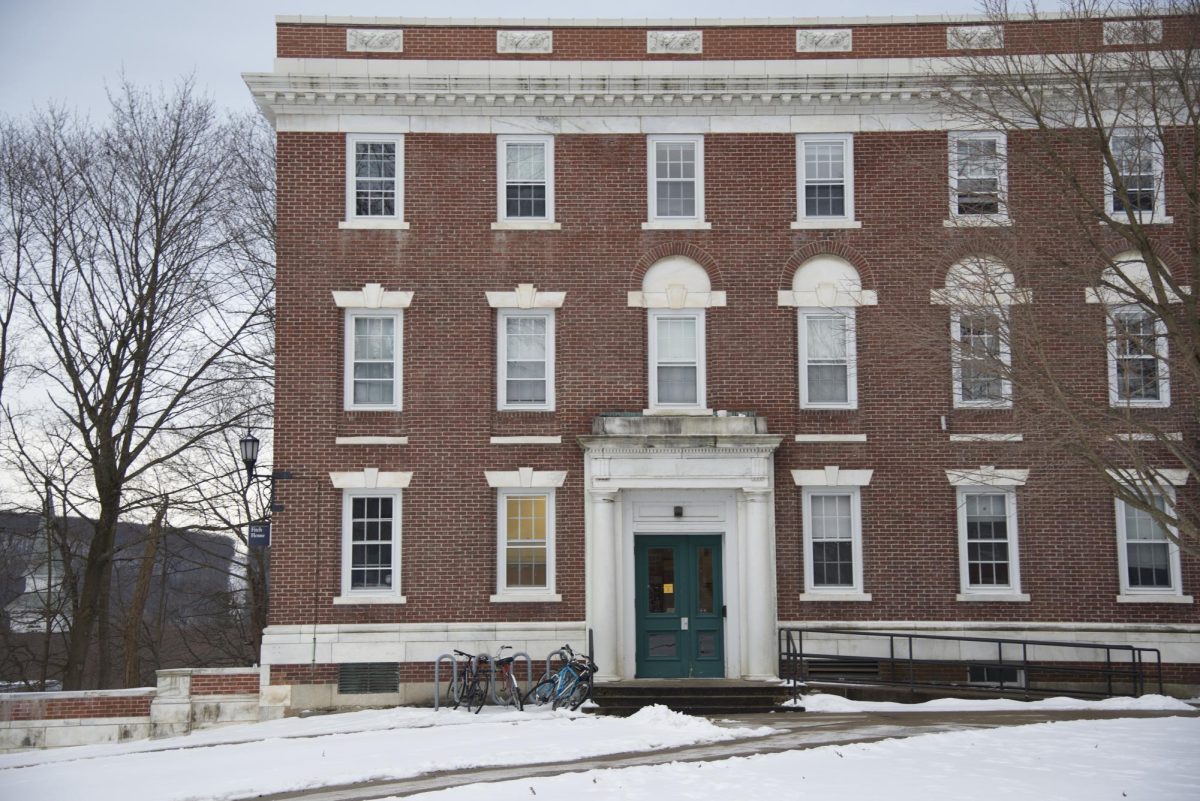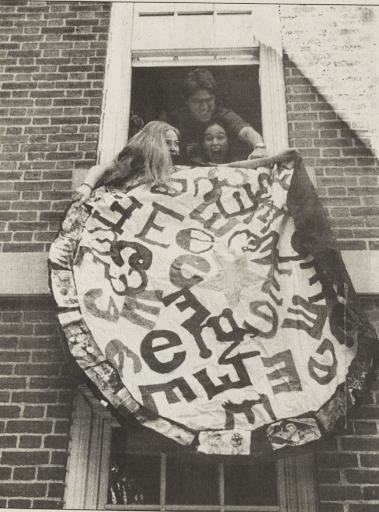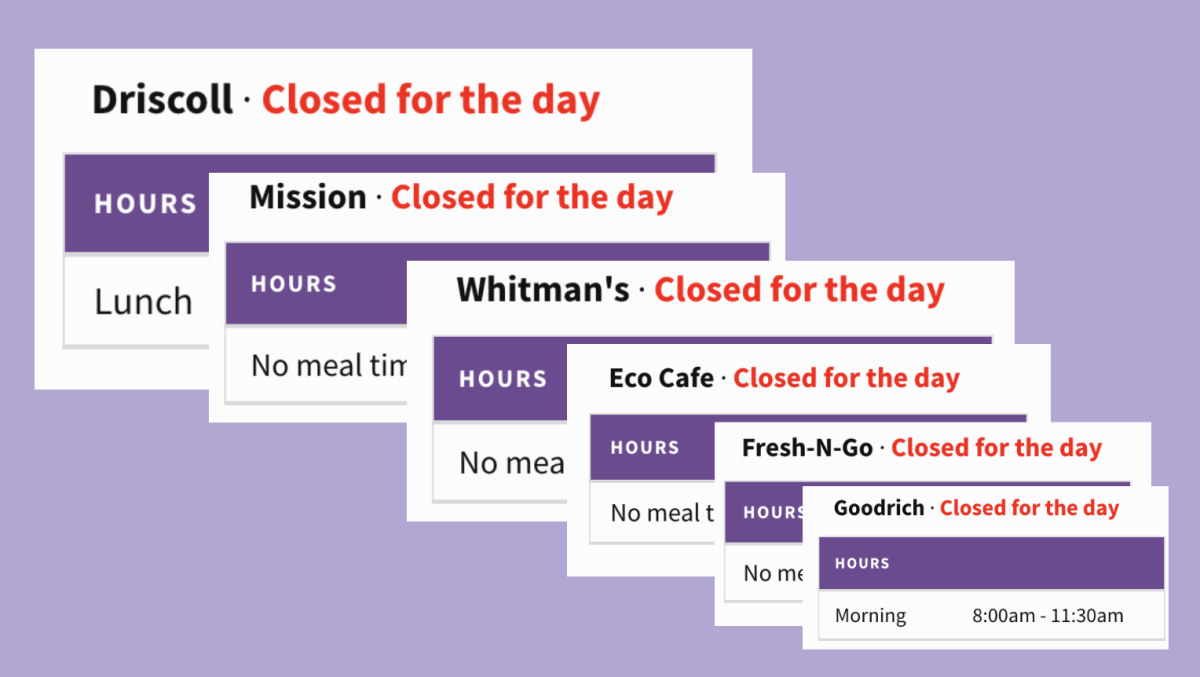
If the tinted, paper glasses strewn across Lee Snack Bar tables, the recent buzz about “paths of totality,” and obscenely-early alarms didn’t alert you, on Monday, swaths of the United States experienced a total solar eclipse — an astronomical event in which the Moon passes between the Sun and Earth, momentarily shielding the Sun’s light.
The path of totality — the area in which one can witness the Moon fully blocking the sun — stretched from Mexico up through Canada, and included parts of northern Vermont, an easily drivable distance from the Berkshires. Students at the College and Williamstown residents were, naturally, eclipse-enthused.
The College’s physics and astronomy department led the charge in generating excitement and providing information about the eclipse. Kevin Flaherty, lecturer in astronomy and observatory supervisor, spoke to the Record about the department’s efforts.
“It’s a really accessible scientific thing in the world,” Flaherty said. “A lot of science takes place in labs or involves equipment — this is just a, ‘Go outside and look at it.’ It’s really dramatic and it’s easy to see.”
The department made sure to organize events both for those traveling to see the eclipse and those staying in Williamstown. They sent two 12-passenger vans to Newport, Vt., in the path of totality, and, on campus, put together a solar eclipse viewing in front of the Hopkins Observatory, which featured telescopes through which people could view the eclipse and a live-stream of the sky in the path of totality. To celebrate International Dark Sky week — a week that celebrates the value of dark and natural light and the impact of light pollution — the department also turned off all of the lights in Science Quad on Monday at 10 p.m.
To ensure every community member could experience the eclipse, the department purchased thousands of paper eclipse glasses — which filter out the majority of the Sun’s radiation for safe eclipse viewing — for every student, faculty, and staff member at the College, as well as every schoolchild in the Town.
Department members also visited local schools to teach students about the eclipse. “It’s a ton of fun to talk to three-year-olds and also eighth graders about solar eclipses and get them excited about it,” Flaherty said.
Alongside their professors, astronomy students partook in the department’s eclipse eagerness.
Valeria Lopez ’26, an astrophysics and women’s gender and sexuality studies double major and co-chair of Photographing and Understanding the Lights of Space and the Astronomical Realm (P.U.L.S.A.R.), the College’s astronomy club, noted the anticipation students in the astronomy and physics departments felt prior to the eclipse. “We’re all really excited,” she said. “We’ve been waiting for it since last year.”

“To speak to the dynamic of the astronomy students, everyone I know has been excited about the eclipse,” Tasan Smith-Gandy ’24, P.U.L.S.A.R.’s founder, added. “It’s been nice to see everyone come together to make this plan… A lot of us haven’t ever seen a solar eclipse, especially in the path of totality.”
Enthusiasm for the eclipse was certainly not, however, confined to the astronomy department — students and professors throughout the College celebrated the occasion. Along with many of her colleagues, Professor of Geosciences Alice Bradley canceled her Monday classes and headed to northern New Hampshire to see the eclipse.
“I canceled class for two reasons: I am excited to see the eclipse in the path of totality, and I don’t want my class to be the reason someone doesn’t go to see it,” Bradley wrote in an email to the Record. “I hope other faculty are similarly understanding!”
Bradley saw the eclipse as an unmissable opportunity for students to observe a real-world scientific phenomenon. “One of the primary goals of our introductory geosciences classes is to start thinking deeply about how the planet works,” she wrote. “I’m sure seeing the eclipse will be a much more memorable use of my students’ time than a lecture on global energy fluxes.”
Alex Root ’26 traveled with his friends to Burlington, Vt., to see the eclipse. “It just seemed like, at least for me — maybe depending on where I live in the future — a once in a lifetime opportunity to see something really cool,” Root said before his trip.
“The eclipse was absolutely indescribable, and it was a wonderful day all-around!” Root wrote in an email to the Record after returning from his Burlington adventure. “I’m very glad we made the trip and lots of great memories!”
“I had such a great time,” said Noah Cape ’25, who also traveled to Burlington. “Nothing I heard about the eclipse prepared me for how amazing totality was. Hard to put into words how awesome it was.”
The Williams Outing Club (WOC) also organized a trip to the path of totality and a community viewing session on campus on Paresky Lawn. WOC Co-Presidnet Abby Murphy ’25, who planned the on-campus event, emphasized the value of the joint experience in an email to the Record. “It felt pretty magical to see campus around me slowly get darker and hear everyone process the craziness of what was happening together,” she wrote. “It was pretty special to be next to the Williams community as that moment happened — but also to know that so many other people across the United States were doing exactly what we were doing too. The College and world both became a little smaller.”
Despite the excitement, a degree of melancholy permeated Monday’s eclipse festivities. Community members collectively felt the absence of Jay Pasachoff, the renowned professor of astronomy at the College, who passed away in 2022. Pasachoff, who was chair of the International Astronomical Union’s Working Group on Solar Eclipses, saw 75 solar eclipses in his lifetime — the most of any human in history at the time of his passing — 36 of which were total solar eclipses.
“It’s always in the back of our mind with what we’re doing with the eclipses, you know, ‘What would Jay be doing?’” Flaherty said. “‘Make sure you leave early, bring a telescope with a camera.’ But he’d also tell people to take a second and enjoy the eclipse. Even if you’re studying it for science, take a second away from the camera and just enjoy the beauty of a total solar eclipse.”
Smith-Gandy, who had a trip planned with Pasachoff to see an eclipse in Australia last April — but was unable to go following Pasachoff’s passing in November 2022 — also emphasized the excitement Pasachoff brought to eclipse-chasing. “It’s really sad not to have him around anymore, especially to miss such a big event that I’m sure he would be really excited and advocating for here on campus,” he said. “But it is powerful to see everyone else so excited about and sharing the love for it.”
“I feel like [Pasachoff’s] legacy carries through the department, and the excitement for eclipses in general and traveling into what he calls ‘expeditions’ is also really huge,” Lopez added. “Me and my friend wear matching orange pants because he had a pair of orange pants that he would always wear. Those were his lucky pants.”








